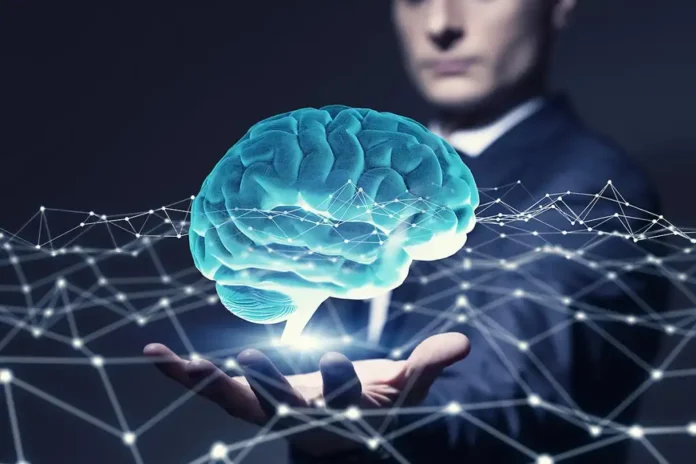Key Takeaways
- Understanding the operational influence of AI in healthcare.
- Examining the benefits of AI in patient diagnosis and prognosis.
- Exploring AI’s impact on personalizing patient care plans.
- Discussing the challenges and ethical considerations faced.
- Reviewing real-world applications and future implications of AI in healthcare settings.
Artificial intelligence is revolutionizing patient care outcomes. By analyzing vast amounts of data, AI offers insights for personalized treatment plans, early disease detection, and efficient resource allocation. Its integration enhances diagnostic accuracy, streamlines workflows, and ultimately improves healthcare delivery, paving the way for more effective and patient-centric care.
The Integration of AI in Modern Healthcare
AI is rapidly becoming a critical element of the healthcare system. Innovators are leveraging AI capabilities to improve accuracy in diagnosis, enhance patient interaction, and implement personalized healthcare strategies. The proliferation of AI in healthcare is not a futuristic dream but a present reality, reshaping the landscape of patient care services to be more efficient, effective, and personalized. This new era of tech-enabled healthcare presents an opportunity to reinforce the patient-clinician relationship by arming healthcare professionals with predictive tools and intelligent systems that facilitate better decision-making and patient outcomes.
Operational Advancements with AI in Healthcare Facilities
A significant benefit of incorporating AI within healthcare facilities is the optimization of operational tasks. Imagine a hospital where administrative workflows are streamlined to ensure healthcare providers have more time to focus on patient care rather than paperwork. AI can tackle routine tasks such as appointment scheduling, patient triage, and record-keeping with increased speed and accuracy. Doing so alleviates the administrative burden on clinicians and staff, resulting in a more focused and patient-centric approach to care. These operational advancements are not just hypothetical scenarios; they are already underway, transforming healthcare facilities into intelligent, efficient, responsive establishments that can adapt to patient needs and provider availability.
Revolutionizing Diagnosis and Prognosis
The power of AI in enhancing the diagnostic process cannot be overstated. Artificial intelligence (AI) systems can evaluate medical data at a rate of knots, allowing them to spot patterns and anomalies that human experts might overlook. This capability is particularly critical in the early detection and diagnosis of diseases, where time is of the essence. Furthermore, AI systems continue to refine prognosis by predicting disease progression and potential complications, enabling healthcare practitioners to tailor interventions that preemptively address patient needs. The effect on treatment outcomes and patient well-being is profound, signaling a revolution in delivering healthcare.
For an in-depth view of these breakthroughs, consider this article that delves into the current research on AI applications in predictive diagnostics, outlining how these technological advancements are setting the groundwork for the next wave of healthcare innovation.
Personalizing Patient Care Plans
AI’s contribution to personalized medicine is transformative. AI systems can help create highly customized treatment regimens by gathering and evaluating enormous patient data, including genetic data. These customized care pathways consider many factors- genetic predispositions to lifestyle choices – ensuring that each patient receives the most suitable treatments and interventions. This personalization extends to medication regimens, where AI can predict how different drugs interact with a patient’s genetic makeup, optimizing drug efficacy and minimizing side effects.
Challenges and Ethical Considerations in AI Healthcare
While AI paints a picture of a technologically advanced healthcare future, it brings challenges and ethical concerns. The foremost among these is the protection of patient privacy. As AI systems require access to vast quantities of personal health data, ensuring the security of this information is paramount. Additionally, the question of accountability in AI decision-making presents a problem. How do we determine responsibility when an AI-driven diagnosis or treatment plan goes awry? The answers are complex and require a collective effort from policymakers, healthcare providers, and AI developers to establish robust ethical guidelines and governance structures for the responsible use of AI in healthcare.
Real-World Applications and Future Directions
The practical applications of AI in healthcare are vast and varied. From sophisticated algorithms that support radiologists in interpreting imaging studies to chatbots that provide patient education and support, AI is already entrenched in several facets of patient care. This news report showcases the real-world applications of AI within healthcare and demonstrates how these technologies are not mere concepts but tools with real impact.
Considering these strides, it is clear that the trajectory of AI in healthcare points towards greater integration and an expanded role in future healthcare delivery models. The goal is to create AI-powered solutions that close the knowledge gap, improve human care, and let patients take an active role in their health care.
Data-Driven Health Monitoring and Predictive Analytics
Wearable technology and AI-infused health monitoring devices are revolutionizing proactive health management. They provide continuous data streams that, when analyzed through AI systems, can predict health events before they manifest. This shift emphasizes the potential of predictive healthcare, where preemptive actions can be taken based on real-time data, thus steering the focus from treatment to prevention. As these technologies become more accessible and integrated with healthcare services, they will be crucial in shaping a more anticipatory approach to health and wellness.
Conclusion: AI’s Integral Role in the Future of Healthcare
Artificial intelligence is not just augmenting healthcare but actively reshaping its future. It’s a tool with immense promise for improving patient outcomes, operational efficiency, and the overall health system. As we chart the course forward, integrating AI into healthcare must be done thoughtfully, considering the potential risks and ethical implications. Nevertheless, prospects are bright as we anticipate AI’s role in fostering a more efficient, personalized, and forward-thinking healthcare environment that equally benefits patients and healthcare providers.
Suggested reads: The Untold Story of Finlo Clarkson: Car Accident, Siblings, and What Happened to Him
